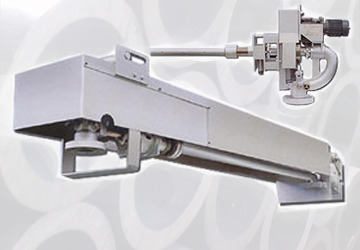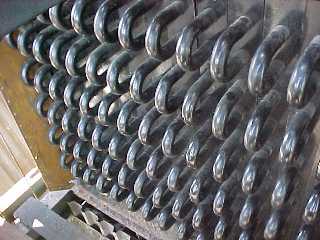
The Ultimate Guide to Sootblower Replacement Parts
Sootblowers are essential components of industrial boilers. Just like the name implies, they can remove soot and ash buildup from a boiler’s heat exchange surfaces.
Home » How Boilers Maintain Plant Operations
One of a refinery or plant’s most fundamental systems is the boiler. They truly are the machinery that keeps the plant operating. The focus is often on the quality and quantity of the actual product output or on the price of the fuels and raw materials that are being brought in, making them one of the less talked-about parts of the plants. The specifics of what boilers are, everything you need to learn about them, and how they maintain plants operating will be briefly covered in this article.
A boiler is a piece of machinery that functions as a closed vessel to create steam from the water inside. Combustion is used to transform chemical energy from a fuel source, such as oil or gas, into heat in order for this to occur. The water inside is then heated, which raises the pressure that eventually turns the liquid state of the water into steam.
The boiler should be built to use mechanisms like radiation, conduction, and convection to transfer the most heat from the combustion into the water as quickly as feasible. For the fuel to be burned to produce the most output at the lowest cost, heat transfer efficiency is crucial. The boiler must also be built to produce high-quality steam that the plant can use to its full potential.
You might be asking why a boiler is necessary now that we’ve talked about what it is, in addition to what plants accomplish with the steam that boilers produce. Depending on the plant, there may be some variations, but generally speaking, the steam generated by the boilers will perform one of the following tasks:
Fuel – Frequently, steam is utilized to power turbines in electric generators, fans, and pumps.
Manufacturing – The steam may also be used to sterilize products before they are produced or to reach the processing temperatures required for a particular production element.
Climate – The heating and cooling systems of the factory may also be run on the steam. This could be done for the comfort of the individual worker, to maintain the equipment’s operating temperature, or both.
The majority of industrial boilers can be divided into two groups. However, there are numerous unique designs and capacities among these categories. As a result, there are a variety of elements that might influence a refinery’s decision on a boiler model, including the refinery’s budget, maintenance needs, efficiency concerns, and technological capabilities at the time of purchase. The following are the two primary types of boilers:
In a fire tube boiler, the heat source, or “fire,” travels through a network of tubes. Water surrounds the tubes, and when the tubes warm up, the water also warms up. Steam is eventually made available for use.
Contrary to fire tube boilers, a water tube boiler employs the water inside of a network of connected tubes as a heat source rather than the other way around. The heat circulates within the tubes, heating the water inside and gradually turning it into steam.
There are several extra factors to keep in mind in order for the boiler to continue operating safely and properly.
Water Level – It’s crucial to carefully maintain the boiler’s Normal Operating Water Level (NOWL). The boiler may stop working if the water level falls too low.
Startup – One of the riskiest phases of a boiler’s operation also happens to be one of the most common occasions for furnace explosions. When starting a boiler, it’s crucial to adhere to all manufacturer recommendations.
Shutdown – There are various shutdown processes for various boilers, but generally speaking, this is also a delicate moment in the boiler’s operation cycle. Therefore, it is crucial to follow the suggested instructions for the specific boiler.
Maintenance – Periodic maintenance and inspections are necessary for all boilers. Additionally, when boilers get older, many of them start to run less effectively. As a result, they can need a significant overhaul, like a refit or retubing.
Boilers are crucial to maintaining plant uptime because they play a significant role in a refinery’s operations. Both pre-scheduled maintenance and planned renovation are examples of preventative steps that can be taken to reduce the likelihood that boilers will have extended or unforeseen periods of outage. In addition, the safety of the boiler unit, as well as the operators of the boiler unit and the plant as a whole, can be substantially improved by doing regular inspections and checking the boiler’s health.
At Industrial Boilers America, we lead in providing the development, licensing, and deployment of Industrial Power plants. When you work with us, you’re leading the way to zero waste. Contact Us today to request a quote.
At Industrial Boilers America, we lead in providing the development, licensing, and deployment of Industrial Power plants. We partner with other leaders of communities and governments to foster long-term relationships that create sustainable energy, jobs, and social responsibility. Our philosophy that sustainability should be rooted in the betterment of the ecosystem rather than profit allows us to provide services that will enable our partners to reinvest in themselves, resulting in a sustainable community.

Sootblowers are essential components of industrial boilers. Just like the name implies, they can remove soot and ash buildup from a boiler’s heat exchange surfaces.

Boilers provide essential heating and steam generation for industries ranging from power production to manufacturing. To ensure safety, efficiency, and functionality, rely heavily on sophisticated

Industrial boilers are essential for keeping the world moving. Understanding the critical industrial boiler parts ensures efficient operation, safety, and longevity of equipment. Main Industrial